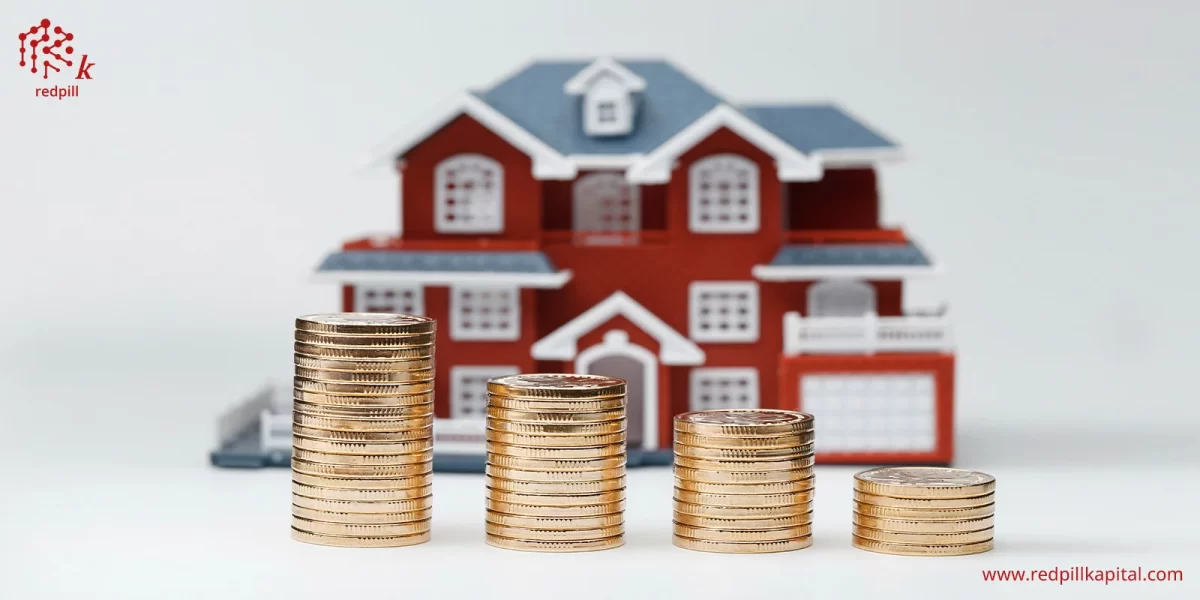In uncertain times, financial advisors often encourage investors to turn to low-risk, fixed-income investment options, such as CDs, money market funds, and high-yield savings accounts. They reason that these safe investments will preserve your assets as they provide positive returns. But do they?
Investing in the stock market and receiving a 60% loss is a no-no, so the financial advisors would rather you invest on a 10-year treasury yield, making 3.7%. While it may seem the investment is making you money, you have to consider that the annual inflation rate rose to 8.2% in September 2022. That means you are losing money (-4.5% annually).
While all investment options seem pointless at the moment, one criminally underutilized segment is viable during market downturns. Did you know you can make as much as 12% returns using alternative investing?
According to Prequin’s 2022 Global Alternatives Report, the alternatives AUM concluded at $13 trillion in 2021 and is projected to expand to 11.7% ($23 trillion) by 2026. This is a look at what alternative investing is all about.
What Are Alternative Investments?
Alternative investments have no basis on traditional financial products like stocks, bonds, or cash. Most alternative investments don’t receive as much regulation from the SEC and could be more illiquid.
Types Of Alternative Investments
As more and more alternatives become available to retail or individual investors, it pays for investors to have a solid understanding of these options. The following are some examples of alternative investments:
1. Private Equity
Private equity is a term that describes investments in businesses not traded on a public market like the New York Stock Exchange or NASDAQ.
The goal of private equity firms is to generate returns for their investors by making strategic investments in private companies with the assumption that the value of those investments will increase by a certain time. You can further break private equity down into these categories:
- Venture capital
- Buyouts
- Growth equity
These asset classes typically require long-term investments of substantial capital, so only institutions and wealthy individuals can participate.
2. Hedge Funds
A hedge fund is a type of pooled investment partnership that trades liquid assets using various investment strategies to generate a high rate of return for its investors. Entrepreneurs can invest in a wider variety of securities, as hedge funds are not subject to the same regulations as mutual funds.
Compared to other alternative investments, hedge funds are notable for their high liquidity ratio. Because they have a higher concentration of liquid securities, you can liquidate the funds in minutes. Due to the high costs and risks involved, only wealthy individuals and institutional investors, like pension funds, typically invest in hedge funds.
3. Structured Products
Structured products are a type of investment that involves pairing a debt instrument (such as a bond or CDs) with one or more derivative instruments tied to an underlying asset class or a collection of assets such as stocks, market indices, currencies, or interest rates.
Despite their complexity and potential for loss, structured products allow investors to create a uniquely tailored portfolio to their needs. Typically, investment banks produce them and offer them to institutional, corporate, and individual clients.
4. Private Debt
Private debt consists of loans from sources other than traditional banks. Businesses often use private debt for expansion, working capital increases, or real estate construction and development.
Given the historically low returns on government bonds, direct lending to businesses can provide a sizable premium over the cash flows accessible from liquid fixed-income products. Private debt funds, the firms that provide the funding, make money through two main channels: interest payments and the eventual repayment of the loan.
A private debt fund may also focus on senior, junior, or mezzanine debt, among other strategies, such as direct lending, venture debt, and exceptional situations.
5. Real Estate
Many Americans already have a stake in this asset class because they are homeowners, making real estate the most viable alternative investment. Real estate investments can take the form of direct property ownership or indirect investments.
Properties like apartment buildings and shopping centers provide regular rental income to their owners, and they hope for price increases over time.
Investors who want a more hands-off approach might buy shares of private real estate investment trusts (REITs) through a broker. REITs that trade publicly do so through the stock market.
In addition to its diversification benefits, real estate offers investors a hedge against inflation and favorable tax advantages.
6. Commodities
Commodities are tradable items that have both direct and indirect economic uses. Examples of commonly traded commodities include gold, farm animals, precious metals, wool, oil, gas, wood, and uranium.
Given their relative immunity to fluctuations in the public equity market, investors often use commodities as a hedge against inflation. Commodity prices fluctuate based on supply and demand market forces; increased demand will lead to higher prices and greater returns for investors. You can invest in commodities in several ways, including:
- Futures Contract
- Stock
- Physical commodities
7. Collectibles
When you invest in collectibles, you aim to generate a return on your money through long-term appreciation of the items you own. Some of the common types of collectibles include:
- Books
- Rare wine
- Stamps
- Antiques
- Trading coins
- Art
- Coins
- Baseball cards
- Toys
To succeed in this alternative investment strategy, you need an extensive understanding of the sector and the patience to hold on to your investment for a long time. It is not easy to predict how much a work of art, or a collection will increase in value because both can decline in worth or get destroyed.
Some collectors treat their collections as investments on par with their homes or cars, and their collections make up a significant portion of their net worth. Adding collectibles to a portfolio is a great way to diversify your investment base and spread your risk.
Final Word
Many investors are increasingly looking to alternative investments to diversify their portfolios, maximize their returns, and accomplish other financial objectives. That is why it is so important for investors to have a firm grasp of the options they have to adopt alternative investments into their portfolios successfully.









